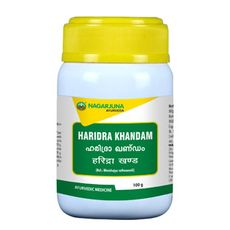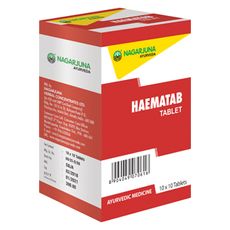 Where should we deliver your order?
Where should we deliver your order?The Health Benefits Of An Indian Diet

Ayurveda contains a wealth of information about health sciences. Accordingly, traditional foods and their dietary guidelines are well prescribed in Ayurveda. Many of the traditional health foods in India can be referred to as ayurvedic foods because of the similarities between Ayurvedic dietetics and traditional cuisines.
This blog post covers the ideas behind Ayurvedic health foods in India and gives descriptions of some traditional dishes that are considered healthy in various parts of the country. For each of India's traditional health foods, recommendations are given, taking into account the consumer's age, health status, and seasonal factors.
A wealth of knowledge on traditional Ayurvedic health foods and Indian food culture will be beneficial to health-conscious people all over the world in an era of increasing population, globalization, and global food trade.
Indian View About Healthy Foods
The preparation of traditional Indian foods has varied widely across the nation for many years. In India, there have been many generations of established traditional knowledge regarding food processing, food preservation methods, and the therapeutic effects of food.
Food systems can provide the human body with a variety of biological activities through dietary components. Due to the presence of functional ingredients like body-healing compounds, antioxidants, dietary fibres, and probiotics, traditional foods from India are also recognized as functional foods. These useful molecules assist the body's immune system and help in managing weight and blood sugar levels. Processing techniques such as sprouting, malting, and fermentation enhance the functional properties of foods.
Keep your gut healthy. The importance of gut health, the microbiome, and their impact on our overall well-being are finally making their way to the mainstream, with an increased interest in probiotics.
Our digestive tract is filled with good bacteria that provide us with a variety of health benefits, from boosting our immune system to generating nutrients that keep us alive. We can ingest these probiotics, or good bacteria, as supplements or, more frequently in Indian culture, as part of our regular diet, to improve the general health of our digestive tract. The Lactobacillus family of healthy bacteria, which has been shown to have benefits for health, is a great source of bacteria in yogurt (Dahi). Pickles that have been fermented and brined with salt and water rather than vinegar are traditionally a fantastic source of probiotic bacteria. These types of fermented foods have been a staple in our diets for many years and are a great way to maintain a healthy gut.
Concepts of Ayurveda in Health Foods
In Ayurvedic medicine, the regulation of nutrition is crucial since the entire body is considered a product of food. Ayurveda also provides instructions on how to heal by building a link between the body, diet, and the elements of life. As per ayurvedic theories, a person's food has an impact on their physical, mental, and emotional health, among other factors. If one wishes to stay healthy, one should adhere to a regular, balanced diet. The nutrients are absorbed by the body as a result of digestion. Ayurveda, on the other hand, asserts that food changes first into rasa (plasma), then into blood, muscle, fat, bone marrow, reproductive organs, and bodily fluids.
The term "illness" refers to mental, physical, and spiritual imbalances. Ayurveda includes a variety of well-proven and time-tested therapies for a range of ailments.
Traditionally, Indian foods or Indian food are classified into 3 primary categories:
1. Satvika Foods
Satvika food includes cooked vegetables, honey, fresh fruits, and milk.
2. Tamasika Foods
Tamasika food includes meat, liquor, onion, garlic, and spicy and sour foods.
3. Rajsika Foods
Rajsika Food includes food that gives enough energy to carry out daily duties.

Also Read: The Best Diet To Help Prevent Gastritis From Returning
Indian Thalis
Indian cuisine emphasizes whole, fibre-rich carbs. In addition, the nature of our bodies and the tropical climate demands a diet higher in energy. Studies have found a correlation between Indian cuisine and a lower incidence of Alzheimer's disease, which is thought to be because of the diet's concentration on vegetables and minimal meat intake. Each bowl has a relatively small size in the traditional Indian thali. The thali also includes a few sweet dishes. It consists of 2-3 varieties of dal, sabzi, some rice, or either roti or both. With all the necessary nutrients present in the appropriate amounts, this thali serves as a complete meal.
Benefits of Indian Traditional Food
Listed below are the benefits of Indian traditional food:
1. Helps in controlling blood sugar levels.
According to a study, Indian food is suitable for those who currently have diabetes and can help reduce the risk of type 2 cancer. Whole grains, pulses, lentils, brown rice, and other high-fibre foods are helpful in managing diabetes.
2. Helps in controlling and maintaining weight
Milk and its by-products, including curd, ghee, buttermilk, and cheese, are a major component of the Indian diet. Calcium, phosphorus, B vitamins, potassium, and vitamin D are all present in milk in good amounts. Additionally, it is a fantastic source of protein. Therefore, consuming these foods may help you maintain a healthy weight and prevent conditions like osteoporosis and bone fractures.
3. Help to improve vision and lower cholesterol
The essential vitamins are found in the veggies found in the Indian diet, which also help to improve vision and lower cholesterol. It gives your body fuel and aids in energy production. A, B, C, and E vitamins are abundant in pulses.
4. Helps in increasing immunity
Research on Indian spices has often shown that they not only have a potent flavor but also have additional advantages. It is aesthetically pleasing and enhances general health. In addition to providing delicious flavor, Indian spices have several health benefits, including the ability to fight off free radicals and boost immunity.

Conclusion
Our Indian food culture is so varied because it was shaped by the regional environment, culture, and agricultural methods. Additionally, certain foods have become popular in particular regions based on the general health of the population, such as lactose sensitivity in Bengal, which led to the creation of lactose-free dairy delights. The advantages of an Indian diet are clearly described above, including how it supports healthy digestion, gives us the right nourishment, and regulates our blood sugar levels.
Consult Dr. Akanksha Tiwari (MSc in nutrition science) to learn more about Indian food culture, and the benefits of the Indian diet, or to personalize a diet plan for you. Additionally, you can get the best diet and lifestyle advice for your problems as well as shop for amazing Herbal, Ayurvedic, and Unani goods and services at HealthyBazar.
This article is written/approved by:

Dr. Shivani Nautiyal
Dr. Shivani Nautiyal is a renowned Ayurvedic physician, Panchakarma therapies specialist, and detox expert who has made significant contributions to the field of natural holistic healing and wellness. With her profound knowledge, expertise, and compassionate approach, she has transformed the lives of countless individuals seeking holistic health solutions. She is a Panchakarma expert, which are ancient detoxification and rejuvenation techniques. She believes in the power of Ayurveda to restore balance and harmony to the body, mind, and spirit.
































